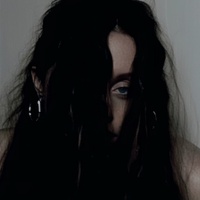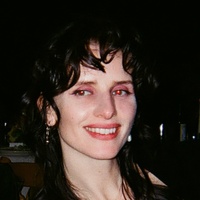On trusting your gut instinct
Prelude
Nilüfer Yanya is a London-based singer-songwriter. Raised in a creative family, Yanya has always channelled her emotions and questions about life into music. Her first album Miss Universe and its 2022 follow-up Painless cemented her as one of the UK’s most interesting and thoughtful songwriters, lauded by critics on both sides of the Atlantic. Since her debut, she has performed on The Tonight Show Starring Jimmy Fallon, The Late Show with Stephen Colbert, Later… with Jools Holland, and NPR’s Tiny Desk. She has opened for artists as varied as Adele, the xx, and Mitski, and sold out her own headlining shows across Europe, Australia, Japan, and the U.S. Her most recent album, My Method Actor, a close collaboration with producer Will Archer, landed on multiple publications’ best-of-the-year lists. This is her second interview with The Creative Independent.
Conversation
On trusting your gut instinct
Singer-songwriter Nilüfer Yanya discusses making remixes, working truly collaboratively, and how she spends her jet-lagged mornings.
As told to Meghana Kandlur, 1783 words.
Tags: Music, Collaboration, Process, Family, Health.
You’ve mentioned in other interviews that your most recent album, My Method Actor, is about being so committed to playing a certain character that it becomes your daily life, and that that’s how you see music and performance. The album overall engages with questions of identity and authenticity, especially over time. It led me to wonder: when do you feel most like your authentic self?
Probably I feel most like my authentic self when at home with my family. Sometimes when I’m writing I feel my most authentic as well. I think writing alone probably feels like the most authentic. Also any creative thing, like drawing or making something with my hands.
You’re currently on a break in the midst of two different legs of your tour. When you’re actively on the road — and during this time in between—how do you nurture your creative self and your personal wellbeing?
I’m really trying to rest in this period right now… The jet lag is already pretty weird because you’re in a weird space, so I’m just trying to take it easy—which is hard because when you come back home, there’s always so many things you want to do and see.
This week’s quite busy, so I’m trying to do things at a reasonable pace and honestly just see my family quite a bit, just cook some nice meals. I’ve been touching base with my learning of Turkish again in the mornings, which has been a nice way to start the day at 5:00 a.m. when I’m up from jet lag. Just feeling like I’m doing things that are for the “me me” as well, not just the “music me.”
We’re a few days out from the release of the remix album to your project. Why did it feel important to have these additional reinterpretations of the album, and how did you select the collaborators who did remixes?
I think it’s one of those things [that] feels at this point almost like a habit. Even since my first release, I’ve always had a remix. Maybe not of every song, but I remember the first single I did was remixed, and then the second one as well, and then it just feels like a nice thing to do after a while.
Why would you not want to see what someone else can do with it? Because it’s not ever going to harm you, even if you’re not in love with the end product. I love the idea of my music reaching different people because of the way it’s being remixed. I love when I get back a remix and I can just dance around to it and hear it in a different way… Sometimes I’m like, “That’s so weird, that’s not what I was expecting,” and then sometimes I’m like, “Wow, I love this.” It makes you love the song more because you feel quite proud of its strength in the songwriting.
I think it’s always nice to approach people that you’re generally a fan of in the first place because then, even if the end product’s something different, you still really appreciate the time and the energy they’ve put into [making] their own spin on it. I love the Empress Of remix of “Mutations.” I would’ve never made it this way. You’re like, “Maybe I should make music like this. Maybe I should just do something different.”
In your lyricism, I feel like there are times when it’s explicitly clear the song is written from a viewpoint that isn’t yours and you’re occupying a role, like in “Small Crimes.” How often do you write from a perspective outside of your own or from a very particular side of yourself?
Every now and then, it’s a different character. Or the same character crops up. I feel like on this album, it was definitely “Method Actor” where I was writing it from this different perspective.
I think sometimes you just get very carried away in your head. And it’s not completely genuine to who you are at this point in time, but you can relate to aspects of the person, or the character, or whatever it is. It really gets you questioning who you think you are in the first place. Like, “Why do I think that’s not me?” I named the album My Method Actor because it talks about and asks those questions about identity and how you see yourself—the reflection of you, and these ideas [that] have built the idea of you. I don’t know why I think the more unsavory characters aren’t me. They could be me; they are me. There’s a disconnection from it a little bit.
When does an album feel done to you? How do you determine which songs are not the best fit for a project, and how do you let go?
For this album, me and [producer] Will [Archer] were writing for most of the year until we had these recording dates blocked in to do some final recording takes, and drum takes, and things like that. It definitely didn’t feel rushed, and I think I had spent more time on this project than any other project, proper focusing and concentrating. But we still were super strict about the songs that we were going to continue working on.
If something didn’t feel right after the third try or fourth try, or if it was the same problem that kept cropping up, we just eliminated it in the process. In the end, we didn’t have any extra songs, really, because we had already abandoned them. Everything that we were working on made it onto the album, and then we wrote another song in February. With Painless, I finished a couple extra songs that didn’t make it onto the album. I think looking back now, they just weren’t a good fit compared to the other songs. They were made almost in a different mind frame.
I think in the end, it was going to sound a bit too collaged and a bit too similar, in that way, to Miss Universe, which was cool but was a bit of a mess because I was just trying lots of different things and working with lots of different people. I managed to tie it together in the end and got away with it, but at the time, I had no idea what I’d made and I had serious doubts about whether it was good anymore. I love the songs, but I think as an album it confused me. It was weird because when you can put anything on a record, you just do. I think I’ve learned since then that you don’t have to put everything on the record. You can leave things out or you can just remove them. I think it’s quite scary with your first album because you feel like you might not get another shot at it.
What are some of the things that you learned through making this album that you’ll now carry with you?
I think the main thing I learned from this album was the full extent of what collaboration means. Me and Will were the only two people working on the record the whole time, so it really felt like a joint project. I think it takes quite a bit of your ego out of it as well, because you are having to share everything.
Do you keep reception from the outside world in mind when you’re creating? Or how do you successfully tune it out?
That’s a good question. For this record, I played the songs for my brother and my sister and close friends, but I didn’t play them to anyone who works with me. So if somebody said something, I wouldn’t have to analyze what they’re saying and think about it and take it on as a critique. Me and Will didn’t want to do that because it shouldn’t matter. You trust people’s opinions and that’s why you work with them, but you don’t want it to influence your actual creative process too much. I think that created this extra cocoon around the whole project. It almost felt like, at some points, that it wasn’t even real until we finished it. It’s a weird bluffing because you could be making a terrible record, but still be telling people, “It’s going really well, yeah, I’m having fun writing.”
When I’m really not caring or focusing on what other people are thinking, and I’m just doing what I feel is the best, that’s when people tend to like it more. I just have to trust those gut instincts. You have to feel the way. I think that’s the only way. If it ever started going the other way—like, if I think I’ve made something really good and then people start hating it—then I’ll know something’s wrong. But until then, I think maybe I could just keep trusting myself.
It sounds like you were just riding your own creative wave already. Sometimes there are things that we take inspiration and influence from, and sometimes you’re only taking inspiration and influence from what’s already playing through your mind.
Making an album [with someone else], you’re kind of always working off what the other person is feeling and their mood and their energy, what they’re bringing that day. There were days where I was working by myself, but it’s almost like the person’s always there, in a way. It really does feel like a true collaboration in that sense, because I don’t think I would’ve had enough inspiration to make this album by myself.
Would you say that songwriting is an attempt to express or translate emotion into a different form?
Yeah, I think it definitely is something to do with an emotion or a feeling. For me, anyways, that’s how I’ve always connected to music: you’re able to express yourself or say things that you feel like you’re not able to say any other way or in real life. Then it’s weird because it becomes real anyways.
What’s next for you?
I would like to get back into [writing]. I think it always starts to feel a little bit weird when I realize I haven’t been working on music, or doing creative writing for a while. And it’s my job, so I have to at some point.
Nilüfer Yanya recommends:
Parable of the Sower by Octavia E. Butler
Men in the Sun by Ghassan Kanafani
Maya Njie’s Tropica perfume
“The Arc of Love,” Esther Perel podcast episode
The Academy by Lutalo
- Name
- Nilüfer Yanya
- Vocation
- singer-songwriter
Some Things
Pagination



